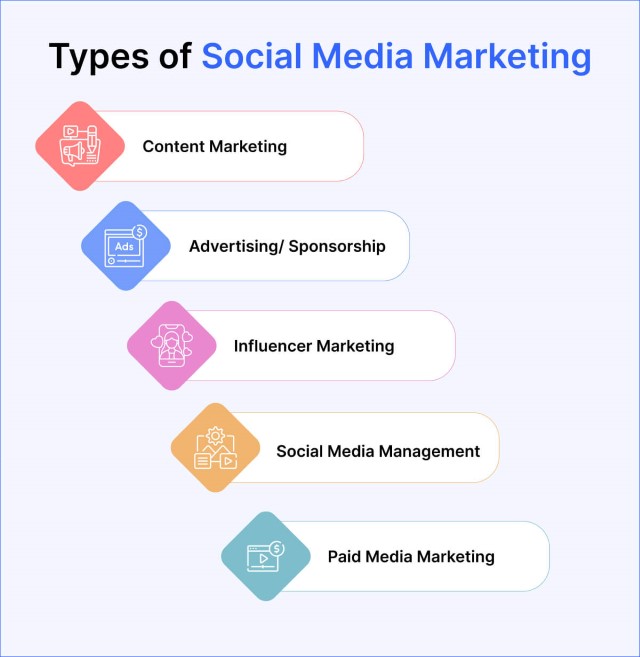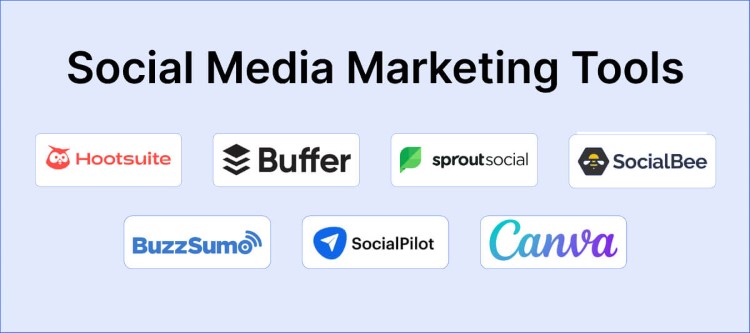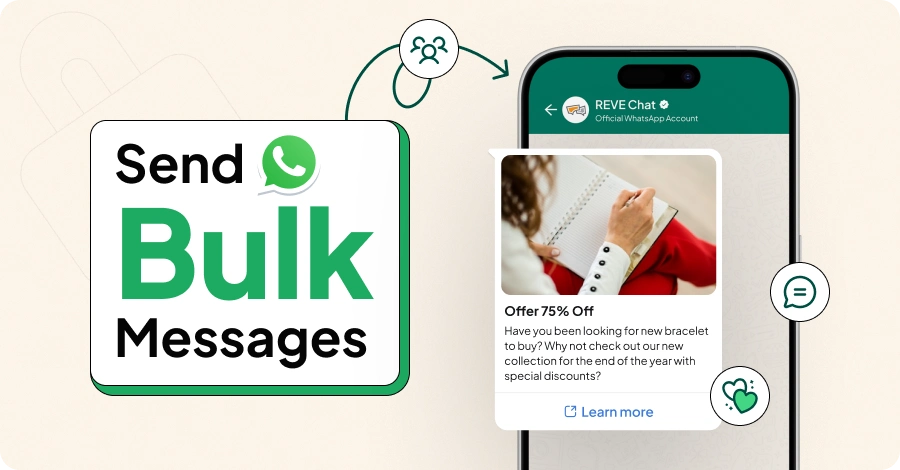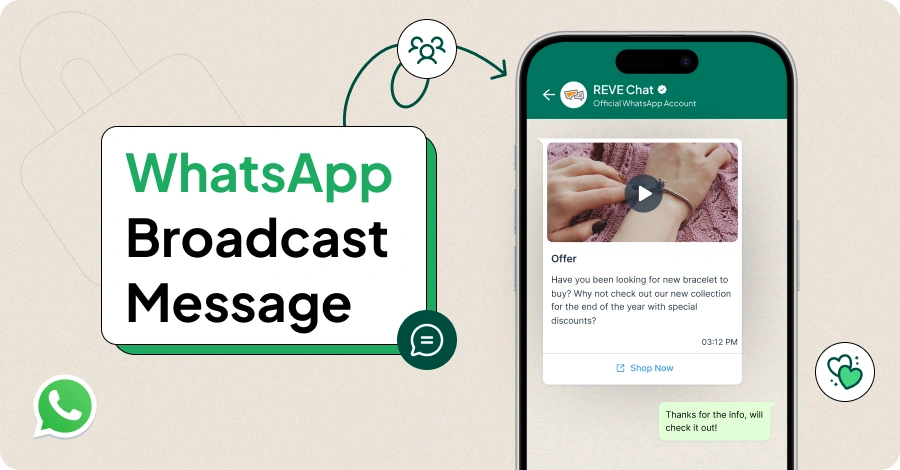Social Media Marketing: Types, Importance & Strategies
- August 2, 2023
- 11 mins read
- Listen

You cannot deny the fact that social media has become more than just a platform for sharing updates with friends and family. It has evolved into a powerful marketing tool that can propel businesses to new heights of success. Social Media Marketing (SMM) has revolutionized the way brands engage with their audience, build brand loyalty, and drive conversions like never before.
Are you ready to discover the secrets to mastering the art of social media marketing? Buckle up as we embark on a thrilling journey through the world of SMM, where we unravel effective strategies, unleash creativity, and harness the true potential of social media to skyrocket your digital presence!
What is a Social Media Marketing?
Social Media Marketing (SMM) is a form of digital marketing that utilizes social media platforms to promote products, services, or brands. The primary objective of social media marketing is to connect with and engage a target audience, build brand awareness, increase website traffic, and ultimately drive conversions or sales. It involves creating and sharing content on various social media platforms to achieve marketing goals.
Undoubtedly, social media marketing is vital for businesses due to the widespread use of social media by consumers. How does social media affect businesses? It offers an effective and relatively cost-efficient way to reach and engage with target audiences while building brand loyalty and driving business growth.
Types of Social Media Marketing
Social media marketing encompasses various strategies and techniques to promote products, services, or brands on social media platforms. Each type of social media marketing serves different purposes and can be used individually or in combination to achieve marketing goals.
Now let’s take a look at the main types of social media marketing.
1. Content Marketing
Content marketing involves creating and sharing valuable, relevant, and informative content to attract and engage the target audience. The content can take various forms, such as blog posts, articles, videos, infographics, and more. Infographics and other visual content have gained immense popularity in recent years due to their ability to convey complex information in a visually appealing and easily digestible format. Creating stunning visual content is made effortless with tools like Venngage, which provides a user-friendly platform for designing captivating visuals that can effectively communicate your message.
The goal is to establish the brand as an authority in its industry, build trust with the audience, and ultimately drive conversions. Content marketing is a long-term strategy that focuses on providing value rather than direct promotion.
2. Advertising/ Sponsorship
Social media advertising involves using paid ads to promote products, services, or brand content to a specific target audience. Platforms like Facebook Ads, Instagram Ads, and Twitter Ads allow businesses to customize their ad targeting based on demographics, interests, behavior, and more.
Sponsorship refers to collaborating with social media influencers or other brands to promote products or services. Sponsored content can reach a broader audience and benefit from the influencer’s credibility and reach.
3. Influencer Marketing
Influencer marketing leverages the popularity and influence of social media personalities (influencers) to promote products or services. Businesses collaborate with influencers relevant to their niche, and the influencers create content featuring or reviewing the brand’s offerings.
This type of marketing is effective in reaching niche audiences and building trust, as followers often view influencers as trusted authorities in their fields.
4. Social Media Management
Social media management refers to the process of handling and optimizing a brand’s presence on various social media platforms. It involves creating and scheduling content, engaging with the audience, monitoring mentions and comments, and analyzing performance metrics. Social media management tools like Hootsuite, Buffer, or Sprout Social are used to streamline these tasks and ensure consistent and efficient social media marketing.
For example, a company’s social media manager uses Hootsuite to schedule and publish posts on Facebook, Instagram, and Twitter. They also respond to comments and messages, track analytics, and adjust the content strategy accordingly.
Pro Tip
Establish a content calendar to plan and organize posts. Respond promptly to audience interactions. Monitor brand mentions and address customer feedback or concerns proactively. Use social media management tools to streamline tasks and save time.
5. Paid Media Marketing
Paid media marketing involves paying for advertising space or sponsored content on social media platforms. This can include display ads, sponsored posts, promoted tweets, or YouTube video ads. It allows businesses to target specific audiences and boost visibility, engagement, and conversions.
For example, a travel agency runs Facebook and Instagram ads to promote their vacation packages. A company pays for sponsored content on a popular YouTube channel to showcase its new product.
Pro Tip
Clearly define your advertising objectives and target audience. Use compelling visuals and copy to capture attention. Regularly monitor ad performance and adjust targeting or budget as needed for optimal results.
Remember that the effectiveness of each type of social media marketing can vary depending on your business, target audience, industry, and goals. A well-rounded social media marketing strategy often includes a combination of these types to maximize reach, engagement, and return on investment. It’s crucial to continually monitor performance, adapt to changes in social media algorithms, and stay updated on emerging trends in the digital marketing landscape.
Importance of Social Media Marketing
Social media marketing holds significant importance for businesses and brands in today’s digital age. Let’s take a look at some of the key reasons why social media marketing is crucial:
- Increased Brand Awareness: Social media platforms have billions of active users worldwide. Utilizing these platforms allows businesses to reach a vast audience and increase brand visibility. Regular and engaging content can help spread brand awareness and recognition.
- Direct Engagement with the Audience: It enables direct communication with customers and prospects. This interaction builds a personal connection with the audience, leading to stronger relationships and increased customer loyalty.
- Cost-Effective Marketing: Compared to traditional advertising methods, social media marketing is often more cost-effective. Businesses can run targeted ad campaigns at a fraction of the cost of traditional advertising channels, making them accessible to businesses of all sizes.
- Enhanced Customer Service: It provides a platform for customers to reach out to businesses with questions, concerns, or feedback. By responding promptly and professionally, companies can improve their customer service and address issues publicly, showcasing their commitment to customer satisfaction.
- Audience Insights and Market Research: It offers valuable analytics and insights into the audience’s behaviors, preferences, and demographics. This data can be used for market research and refining marketing strategies to better target the right audience.
- Increased Website Traffic and Conversions: It can drive traffic to a company’s website, blog, or online store. Engaging content and strategically placed calls-to-action can lead to increased conversions and sales.
- Influencer Marketing Opportunities: It has given rise to influencer marketing, where businesses collaborate with influencers who have a significant following. Partnering with influencers can amplify brand exposure and credibility.
- Competitive Advantage: Many businesses are already using social media marketing, and those that aren’t may fall behind their competitors. Having a strong social media presence can give a competitive edge and help a company stay relevant in the digital landscape.
- Global Reach: Social media enables businesses to expand their reach beyond their local market and tap into a global audience. This is particularly advantageous for companies that offer products or services that can be delivered internationally.
- Brand Personality and Storytelling: It allows brands to showcase their personality, values, and culture. Through storytelling and compelling content, businesses can humanize their brand, making it more relatable to their target audience.
7 Best Social Media Marketing Tools
- Hootsuite: It is a popular social media management platform that allows users to manage multiple social media accounts, schedule posts, engage with the audience, and track performance through analytics. It supports various social media platforms like Facebook, Twitter, Instagram, LinkedIn, YouTube, and more.
- Buffer: It is another widely used social media management tool that enables users to schedule and publish content across multiple social media platforms, track performance, and analyze the results. It also provides a browser extension to easily share content while browsing the web.
- Sprout Social: It is a comprehensive social media analytics platform that offers scheduling, publishing, engagement, and monitoring features. It provides valuable insights and reporting to help businesses make data-driven decisions.
- SocialBee: It is an excellent tool that allows users to categorize and recycle content, making it easier to maintain a consistent posting schedule. It also offers advanced scheduling options and analytics to optimize social media strategies.
- Canva: While not a traditional social media management tool, Canva is a powerful graphic design platform that helps create eye-catching visuals for social media posts, ads, and cover images. It offers numerous templates and editing features suitable for non-designers.
- BuzzSumo: It is a content discovery and social media monitoring tool that helps businesses find popular and trending content in their niche. It also allows users to analyze the performance of their content and track competitors’ social media strategies.
- SocialPilot: It is a social media scheduling and analytics tool designed for teams and agencies. It offers collaborative features, bulk scheduling, and detailed analytics to optimize social media performance.
Social Media Marketing Strategy
A social media marketing strategy is a comprehensive plan that outlines how a business or brand will use social media platforms to achieve its marketing objectives.
It involves setting clear goals, identifying target audiences, creating engaging content, selecting appropriate social media platforms, and measuring performance to ensure the success of the marketing efforts. A well-defined strategy guides the implementation of social media marketing activities, making them more focused, effective, and measurable.
1. Define Clear Goals and Objectives
The first step in creating a social media marketing strategy is to establish clear and specific goals. These goals should be aligned with the overall marketing and business objectives. Common social media marketing goals include increasing brand awareness, driving website traffic, generating leads, boosting sales, improving customer engagement, and enhancing brand loyalty.
2. Identify Target Audience
Understanding the target audience is crucial for crafting content and messages that resonate with them. Businesses should conduct market research to identify their ideal customers, their interests, preferences, and pain points. This information helps in tailoring content and choosing the right social media platforms to reach the intended audience effectively.
3. Select the Right Social Media Platforms
Not all social media platforms are suitable for every business. Depending on the target audience and content type, businesses should choose the platforms where their audience is most active. For example, Instagram might be ideal for visual-focused industries like fashion or travel, while LinkedIn may be more suitable for B2B companies.
4. Create Engaging and Valuable Content
Content is the backbone of social media marketing. Businesses should focus on creating high-quality, relevant, and engaging content that adds value to their audience’s lives. This content can include informative blog posts, entertaining videos, eye-catching images, interactive polls, and other forms of multimedia.
5. Develop a Content Calendar
Consistency is essential in social media marketing. A content calendar helps plan and organize content publishing, ensuring a steady stream of posts that align with the marketing goals. The calendar should include content themes, a posting schedule, and any upcoming events or campaigns.
6. Engage and Interact with the Audience
Social media is a two-way communication channel. Engaging with the audience through likes, comments, and responses to messages is crucial for building relationships and customer loyalty. Businesses should actively listen to customer feedback and address any questions or concerns promptly.
7. Monitor and Measure Performance
Regularly tracking and analyzing social media metrics is vital to understanding the effectiveness of the strategy. Key performance indicators (KPIs) can include reach, engagement, clicks, conversions, and follower growth. Analytics tools provided by social media platforms or third-party social media management tools can help gather this data.
Summary
Social media marketing offers a gateway to connect, engage, and build meaningful relationships with your audience like never before. It’s a journey of constant discovery, where each like, comment, and share counts towards your brand’s growth and success.
So, armed with the knowledge and insights gained from this expedition, it’s time to take action and elevate your social media marketing strategy. Be bold, be creative, and be relentless in your pursuit of excellence. Embrace the challenges and celebrate the victories, for each step forward brings you closer to achieving your marketing goals and strengthening your brand’s digital presence.





